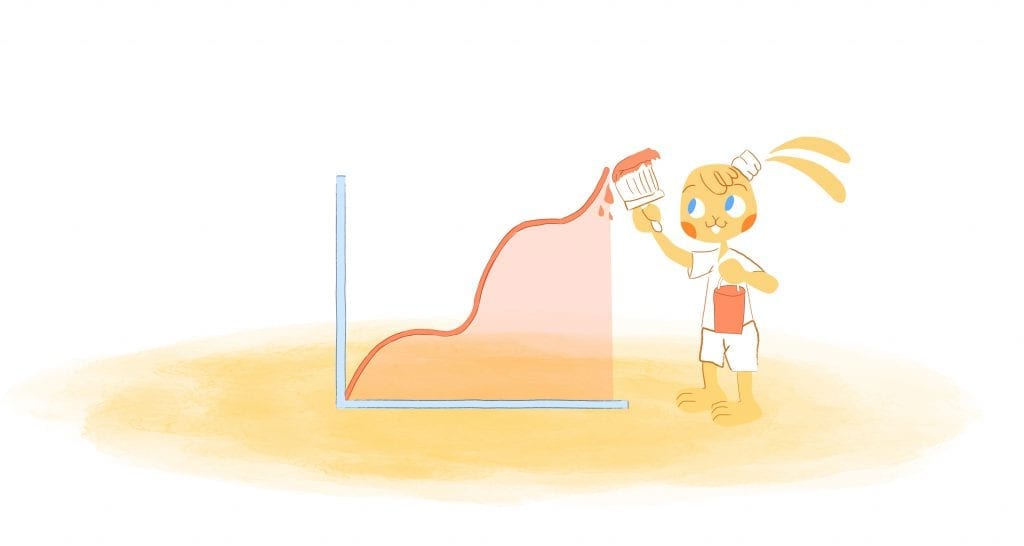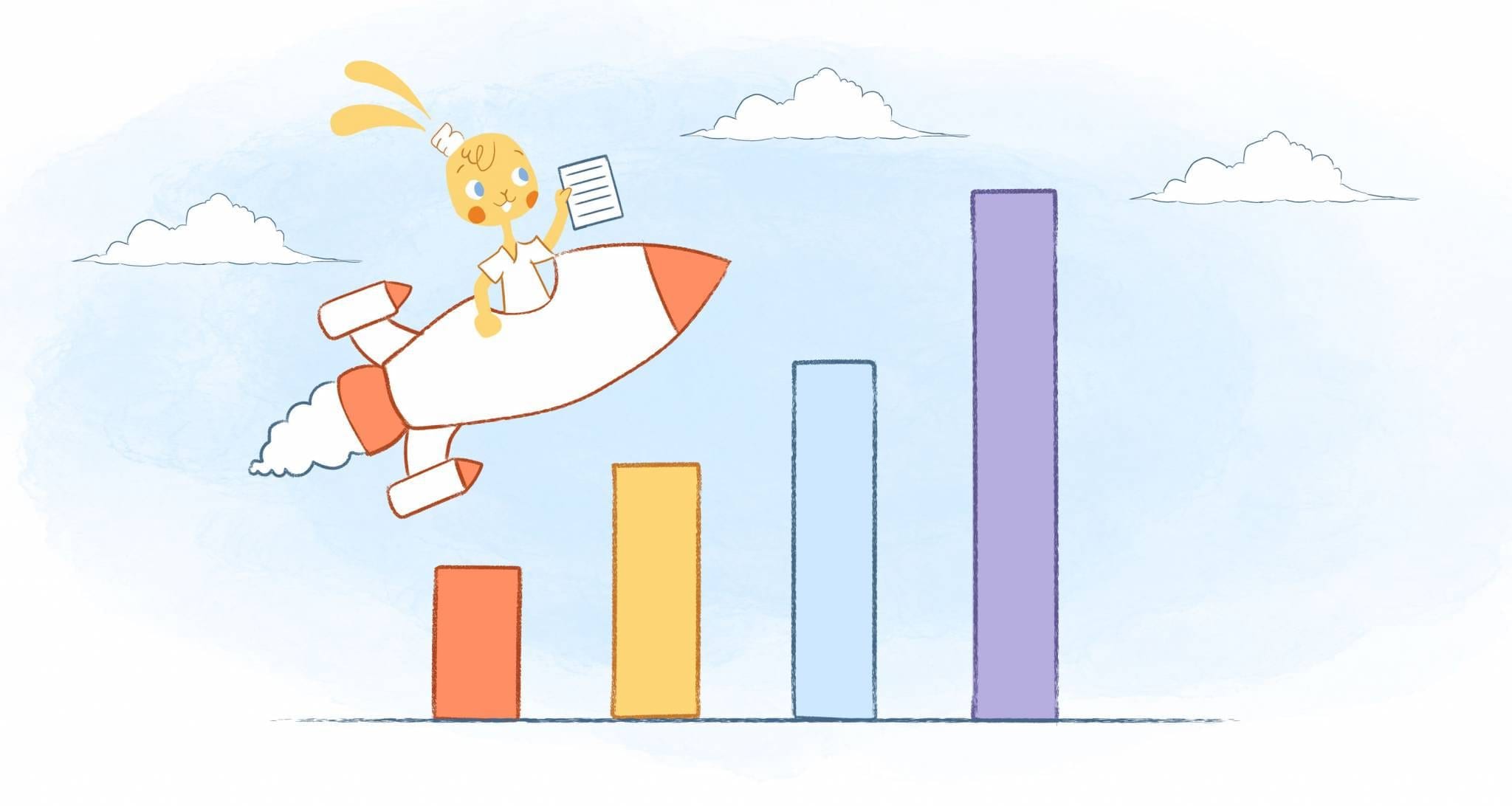

The legendary comic book artist, writer, and editor Jack Kirby once said, “Perfectionists are their own devils.” And, it’s 100% spot on — just like his indispensable contributions to the comic industry.
Note that the reason why that quote resonates with you is that when you’re a perfectionist, you’re actually a procrastinator in disguise. Yeah. You might be in denial — but it’s true.
How Does Procrastination and Perfectionism Reduce Productivity?
Despite the misconception that procrastinators are slackers, the reality is that you may be caught in the procrastination-perfectionism loop.
- Starting a project or assignment is too frightening because you feel that it won’t be good enough.
- You devote too much time in the planning phase instead of getting to work. As a result, you wait until the last minuted to work on the actual task since it won’t align with your “grand vision.”
- Your emotions drive your actions, such as not starting a project because you’re not in the right headspace.
- You prioritize easier and less intimidating tasks. In turn, this prevents you from focusing on more important responsibilities.
Once you’re in this loop of procrastination and perfectionism — you can expect dire consequences.
“The symptoms of procrastination commonly reflect the inability to finish tasks, meet deadlines, arrive on time, and keep promises,” writes Dr. Bill Cloke. “Poor concentration, negative internal messages, unrealistic expectations, and the inability to organize and work constructively are present with procrastination.”
Obviously, all of the above will hinder your productivity. However, in addition to chronic procrastination, being a perfectionist can also destroy your productivity in the following ways.
1. Causes anxiety and depression.
Is anxiety the cause of perfectionism? Or is perfectionism the cause of anxiety? Unfortunately, the answer isn’t always clear. However, multiple studies have found that perfectionism can lead to a myriad of problems, such as anxiety and depression.
“It’s something that cuts across everything, in terms of psychological problems,” says Sarah Egan, a senior research fellow at the Curtin University in Perth who specializes in perfectionism, eating disorders, and anxiety. “There aren’t that many other things that do that.
“There are studies that suggest that the higher the perfectionism is, the more psychological disorders you’re going to suffer.”
2. Lowers self-esteem.
Since perfectionists set impossibly high standards, they feel awful when they don’t meet those standards. As a consequence, this casts a shadow of self-doubt over them. And, eventually, this causes them to engage in negative self-talk.
This might sound like hyperbole. But, because perfectionists never live up to the bar they’ve set, they view themselves as failures. Without that confidence, you aren’t able to succeed and forge forward.
3. Impedes innovation.
Perfectionism often kills innovation. So, it’s not surprising that this would also impact your productivity. After all, as Calendar Co-Founder and CEO John Rampton previously wrote, innovation “encourages you to continually improves and stay on top of trends so that you’ll remain relevant.”
Here’s the problem, though. You dedicate a lot of time to brainstorm ideas. But, since you’re consumed by perfection, you toss those ideas into the trash like last week’s leftovers. And, that might mean that you’re leaving some excellent ideas on the cutting room floor.
As if that weren’t enough, this can also affect your self-confidence. The reason? Because you’re rejecting possible opportunities that can make you smarter, faster, better.
4. Causes health problems.
Several studies have found that perfectionism can shorten an individual’s lifespan.
The reason? It’s simple. Perfectionism can negatively influence an individual’s physical health.
Perfectionists may suffer from chronic headaches, fatigue, insomnia, and heartburn. Perfectionism can also lead to high levels of chronic stress, which are known to be linked to cardiovascular problems. It’s also possible for perfectionists to develop eating disorders.
More concerning? Perfectionism is causing more suicides.
5. Reluctantacy to make decisions.
“There’s an argument that, for unimportant decisions, you should either decide quickly or outsource the decision,” writes Alice Boyles for HBR.
“But perfectionists have a hard time designating decisions as unimportant,” she adds. “They like to be in control of everything.”
Why is this the case? “Because imperfections bother them more than they do other people. If something goes wrong, perfectionists might feel explosive frustration or a niggling sense of irritation that’s hard to ignore, and they don’t want to take that risk.”
“Sometimes, perfectionists are so accustomed to micromanaging that it doesn’t even occur to them that any decision is unimportant,” states Boyles. “They’re blind to it. So instead, they habitually and automatically classify everything as worthy of their full effort.”
6. Difficulty achieving goals.
Perfection may also make it more difficult to achieve your goals. The reason being is that the fear of failure freezes you in place. Obviously, this prevents you from progressing and moving forward.
Furthermore, that nagging negative self-talk occupies the back of your mind. And, that’s not exactly the best way to inspire and motivate you to pursue your goals.
And, since perfectionists have a tendency to quit easily, they often throw in the towel before the going gets tough.
7. Strains relationships.
Getting along with perfectionists isn’t for the faint of heart. Perfectionists may doubt their worth as they’ve convinced themselves that they’re failures. Additionally, perfectionists have difficulty being honest and transparent since they hide their mistakes and vulnerabilities. Eventually, this kind of behavior can be detrimental to relationships.
Also, some perfectionists expect others to live up to the unreasonably high expectations that they’ve set for themselves. And, when not reached, this causes disappointment and conflict when others do not meet these expectations.
8. Limits opportunities.
Finally, perfectionists are obsessed with failure and chasing unattainable expectations, preventing them from trying new things and meeting new people. As a consequence, they can miss out on new and exciting opportunities that can make them more productive.
How to Beat Procrastination and Perfectionism
There is a silver ling, though. It’s absolutely possible to break the dreaded procrastination and perfectionism loop. And, here are some pointers on how to make this possible;
- Lower the bar. This is a process that won’t happen overnight. But, you lower standards by starting small, like not making your bed in the morning or proofreading an email.
- Keep your tasks bite-sized. As the joke goes, “How do you eat an elephant?” By eating one bite at a time. Breaking large projects into smaller ones makes it feel not as daunting. And take these small steps helps build momentum.
- Stop multitasking. As a reminder, the human brain wasn’t designed for multitasking. To fight back against this, try strategies like time blocking, eliminating distractions, and seeking feedback.
- Practice self-compassion. When you need a pep talk, go back and review what you actually accomplished in the day.
- Surround yourself with positive support. Remove toxic relationships and spend more time with those who are supportive.
- Incorporate mindfulness. By being present and not busy, you can stay grounded and reduce anxiety.
- Reduce your commitments. Practice the art of saying no so that you aren’t overextending yourself. In turn, this encourages you to focus on what’s important.
- Reward yourself. When your complete a part of a large task, treat yourself to a walk or your favorite beverage from Starbucks.
- Track your time. This lets you determine when you’re most productive. Knowing this, you can schedule your most important or challenging tasks at this time.
The most important takeaway? Know that you’re not alone. If procrastination and perfectionism interfere with your health and well-being, reach out to a mental health professional.
Image credit: cottonbro; pexels; thank you!











Deanna Ritchie
Editor-in-Chief at Calendar. Former Editor-in-Chief, ReadWrite, Editor-in-Chief and writer at Startup Grind. Freelance editor at Entrepreneur.com. Deanna loves to help build startups, and guide them to discover the business value of their online content and social media marketing.